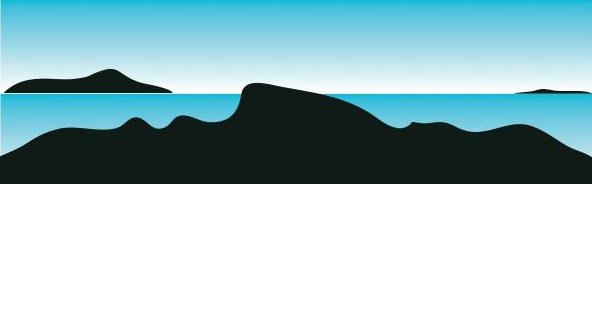The land at Awawaroa Bay located on the southern side of Waiheke Island and comprising 169 ha, was purchased in 1994. A company structure was formed to administer the property and a total of 15 shares was created, meaning that 15 families/individuals now live on the land. From the beginning, there has been a strong environmental emphasis at Awaawaroa Bay Village. The shareholders immediately covenanted about 50% of the property, including all the mature native bush areas, regenerating bush and wetland areas. There is a DOC covenant on some of these areas.
The shareholders agreed to make the land cat and dog free, in the interests of conserving native wildlife. The bay and the surrounding catchment were declared a Site of Environmental Significance by DOC in their survey of the island in 1990. Of particular interest as far as rare species on the land goes, are shorebirds such as NZ Dotterel, Caspian Terns, Oystercatchers and Pied Stilts. There are also wetland species such as Banded Rail, Spotless Crake, Bittern and Fern Birds, and very healthy populations of bush and forest species.
The shareholders have always made predator control a top priority on the land, and to date (Sept 2016) have trapped 76 stoats, 86 cats and untold rats as well as large numbers of wild pigs (313) and wild goats (55).
Native habitat protection and enhancement have been another priority and to date approximately 26,000 eco-sourced native trees have been planted. Awaawaroa Bay Village shareholders have made use of a number of grants from territorial authorities over the years including a DOC Biodiversity Grant for weed control, a DOC Grant for bait-stations and bait, two Auckland Council Natural Heritage Grants and an AC Coastal Enhancement Grant.
In 2012, the Hauraki Gulf Conservation Trust successfully secured funds from Foundation North (formerly the ASB Community Trust) for 2.5 km of contour tracks. This enabled a large tract of previously inaccessible covenanted native bush to be better protected by enhanced access for weed and predator control. From 2015 further funding has been secured from Foundation North to enable the weeding programme to continue. This has been focused on the removal of Japanese Honeysuckle, banana passionfruit, asparagus fern and mothplant
